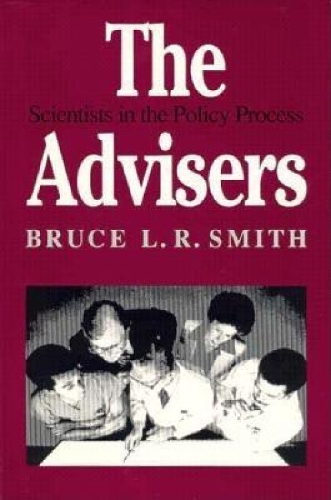
The Advisers: Scientists in the Policy Process
(Paperback)
Publishing Details
The Advisers: Scientists in the Policy Process
By (Author) Bruce Smith
Bloomsbury Publishing PLC
Brookings Institution
1st April 1992
United States
Classifications
Tertiary Education
Non Fiction
Pressure groups, protest movements and non-violent action
Mathematics and Science
338.97306
Physical Properties
Paperback
254
Width 152mm, Height 229mm
454g
Description
America's governing system is unique in the extent to which scientists and other outside experts participate in the policy process. No other nation has used these experts as extensively - not merely for advice on the allocation of resources to science but in broad policy issues. This wide-ranging study traces the rise of scientists in the policy process and shows how outside experts interrelate with politicians and administrators to produce a unique and dynamic policy process. It also shows how the very openness of American government creates the potential for unusual conflicts of interest. Bruce Smith focuses on the experiences of agency and presidential-level advisory systems over the past several decades. He chronicles the special complexities and challenges resulting from the Federal Advisory Committee Act - the "open meeting" law - to provide a better understanding of the role of advisory committees and offers valuable lessons to guide their future use. He looks at science advice in the Departments of Defense, State, and Energy; the National Aeronautics and space Administration; and the Environmental Protection Agency; then focuses on how science advisory mechanisms have worked at the White House. Rather than simply providing a description of structures and institutions, Smith shows the advisory systems in action - how the committees work or fail to work in practice. He analyzes how the advisory mechanisms influence the policymaking process and affect the life of the agencies they serve. Smith concludes with an assessment of the relationship between science advice and American democracy. He explains that the widespread use of advisory committees clearly reflects America's preference for pluralism. By scrutinizing agency plans, goals, and operations, these committees serve a variety of functions and attempt to strike a balance between citizen access to government and the need for sophisticated expertise. The challenge to the nation is to reconcile the integrity of science with the norms of democracy.
Author Bio
"Bruce L. R. Smith is a visiting professor at the School of Public Policy at George Mason University. He was previously professor of political science at Columbia University and a senior staff member of the Center for Public Policy Education at the Brookings Institution."
